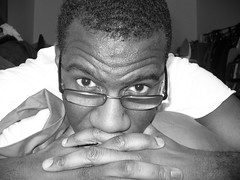
Michael Moore, preeminent provocateur of the documentary film world is back with Sicko. This time he’s taking aim at the managed healthcare system of the U.S. The film serves as a powerful indictment of the insurance companies and those who in essence aid and abet them. He points out the patent insanity of the whole thing and it made me wonder why I hadn’t really thought about any of it before.
Of course, the dire statistic about 50MM Americans lacking insurance is trotted out, but as he says at the beginning, the movie isn’t about them, it’s about us—the people with health insurance.
Moore ’s main argument is that the insurance companies need to be removed from the system completely, because a profit-motive has no place in determining how to treat the sick. Those who adopt a pro-privatization stance argue that competition/profit-driven models create an overall more efficient system. But as Moore points out, how exactly do you generate profits in the health care industry? Why denial of service of course!
The less health care you provide, the more money you make. So you have an industry where the health care professionals are rewarded for providing less care. When I say rewarded, I mean straight-up financial compensation for having a high claim-rejection record. I have to say, despite how obvious it seems, I’d never really thought about the ghastly arithmetic involved. I always thought, well we pay out the arse, but we have the best doctors and hospitals that money can afford. Well I suppose we do, if you’re “money”. I don’t count myself in that group. I have always had pretty decent health insurance I suppose. I’ve worked for the state of Michigan and New York and a couple of Fortune 500 companies. The thing is, I’ve never really had to test how good that coverage actually is.
The movie provides many painful anecdotes about people who did test out their coverage only to find it severely inadequate. There’s the 22-year old denied treatment for cervical cancer, because her HMO says she’s too young to have developed that kind of cancer. Then you have the woman who lost her young daughter, because the insurance company would not pay to give her emergency treatment, insisting she be taken to a neighboring hospital even as her condition rapidly deteriorated in the “out-of-network” hospital. It makes you wonder if these are even people who run these organizations. HAL 9000 had more humanity.
The politics involved are just nauseating. I'll save that for another post entitled "Pissing in the Hurricane."
Moore spends a great deal of time showing us what health care is like in other Western countries such as Canada, France and England—all of which have universal health care. The contrast is infuriating even if Moore uses somewhat idealized images of these systems.
Journalists from some of those countries with universal health care have blasted Moore for being loosey-goosey with the facts. They argue that their systems are not utopian health care paradises. They point to long waits in the ER present in their own countries. Well, I don’t know about anybody else, but when a family member or myself has had to receive emergency care, we waited for hours in the ER insurance or not. The difference is when you leave the ER in Canada , you don’t get billed for it. Nuh-uh, the naysayers cry, “what about taxes?” WTF about’em? When I look at my paycheck, I get a percentage deducted for health care expenses already. Now add in all the co-pays and deductibles and tell me how this is different?
There are four huge impediments that prevent a universal health care system from getting off the ground: a.) the insurance companies; b.) politicians the insurance companies own; c.) doctors that benefit financially from privatization and d.) the over-worked/under-educated American populace.
Moore ’s film aims to stir the fourth group into action. He certainly gives them enough gas to light the torches.
In the Q&A after the film, Moore said that his film is meant to raise the question: “Who are we as Americans. What have we become. What has happened to our soul?” I think (and I am not a cynic but a realist) we’re going where we’ve always gone: for the money. What in our past would lead anyone to think Americans have ever prized anything above financial gain? The country’s very economic foundation was literally built on the backs of slaves. Prior to the emergence of unions, individuals like Henry Ford amassed Croesus-like fortunes working the common man nearly to death. Our foreign policy has often been based on what is best for the American bottom line as opposed to what would create a better world (See: Shah , Iran). We want our history to be “Ma and Pa Kent” as opposed to Jim Crow.
/End rant.
As far as America goes, the brochure has always been nicer than what actually awaits you when you get here. We’re better at making our $#!t smell like peaches than any nation on the planet.
It’s damn tough to get us to stop drinking the Kool-Aid.
So until then, the American people will continue to bend over so that the insurance companies can continue to use our collective @$$es as one big ATM machine. And that thing in their hands ain’t no debit card.
If America really is blessed, then I guess God is the invisible hand. Makes perfect sense, really.




